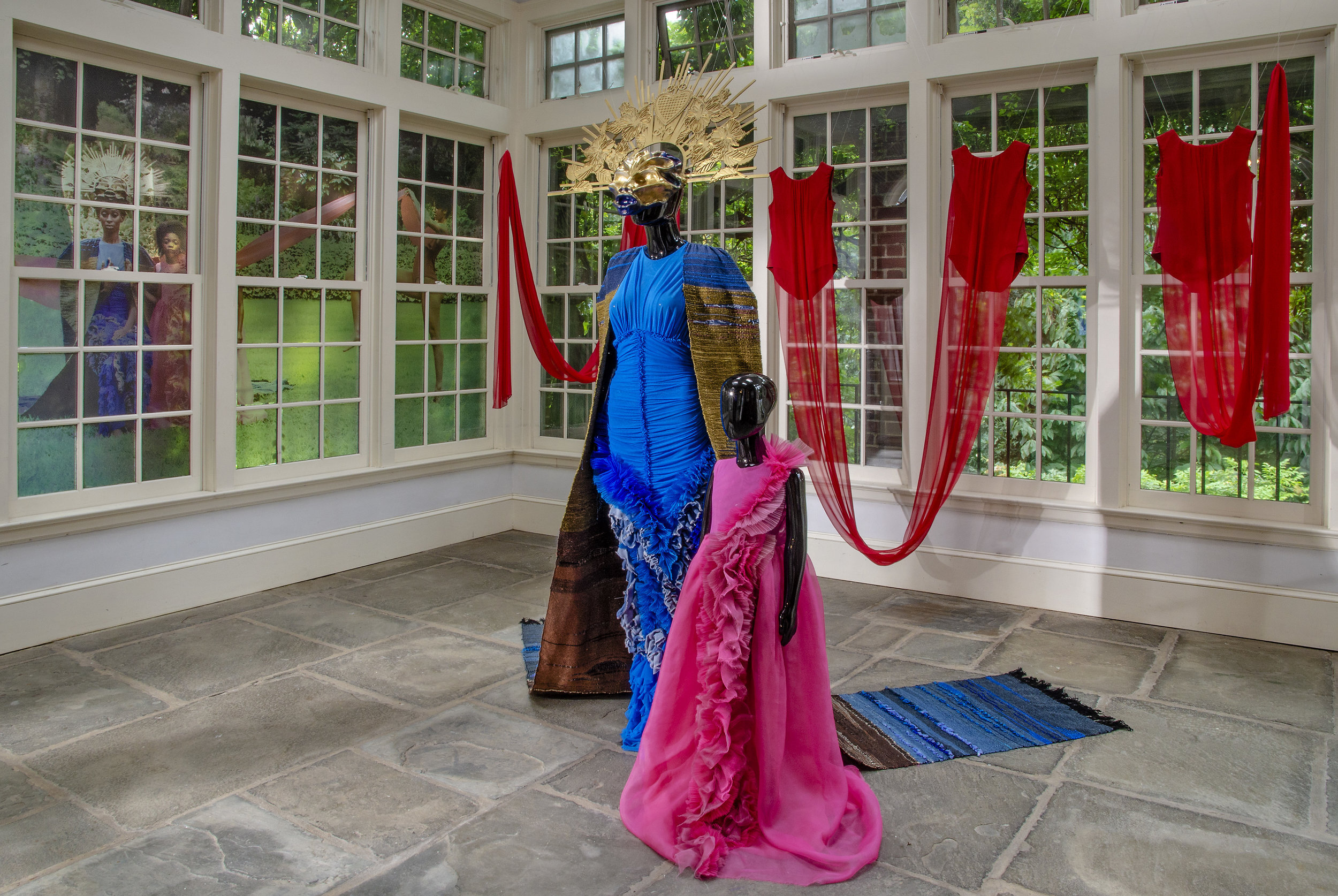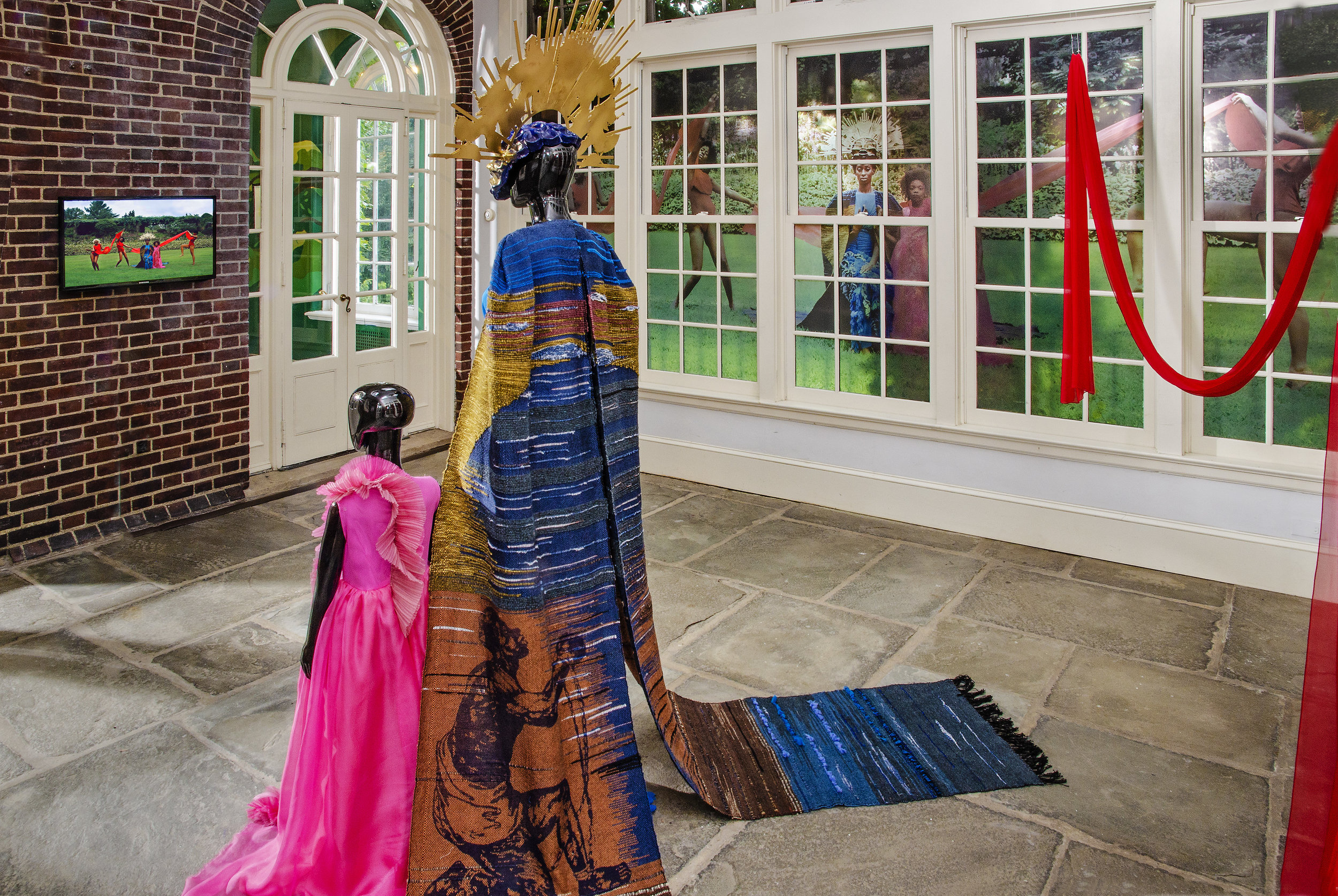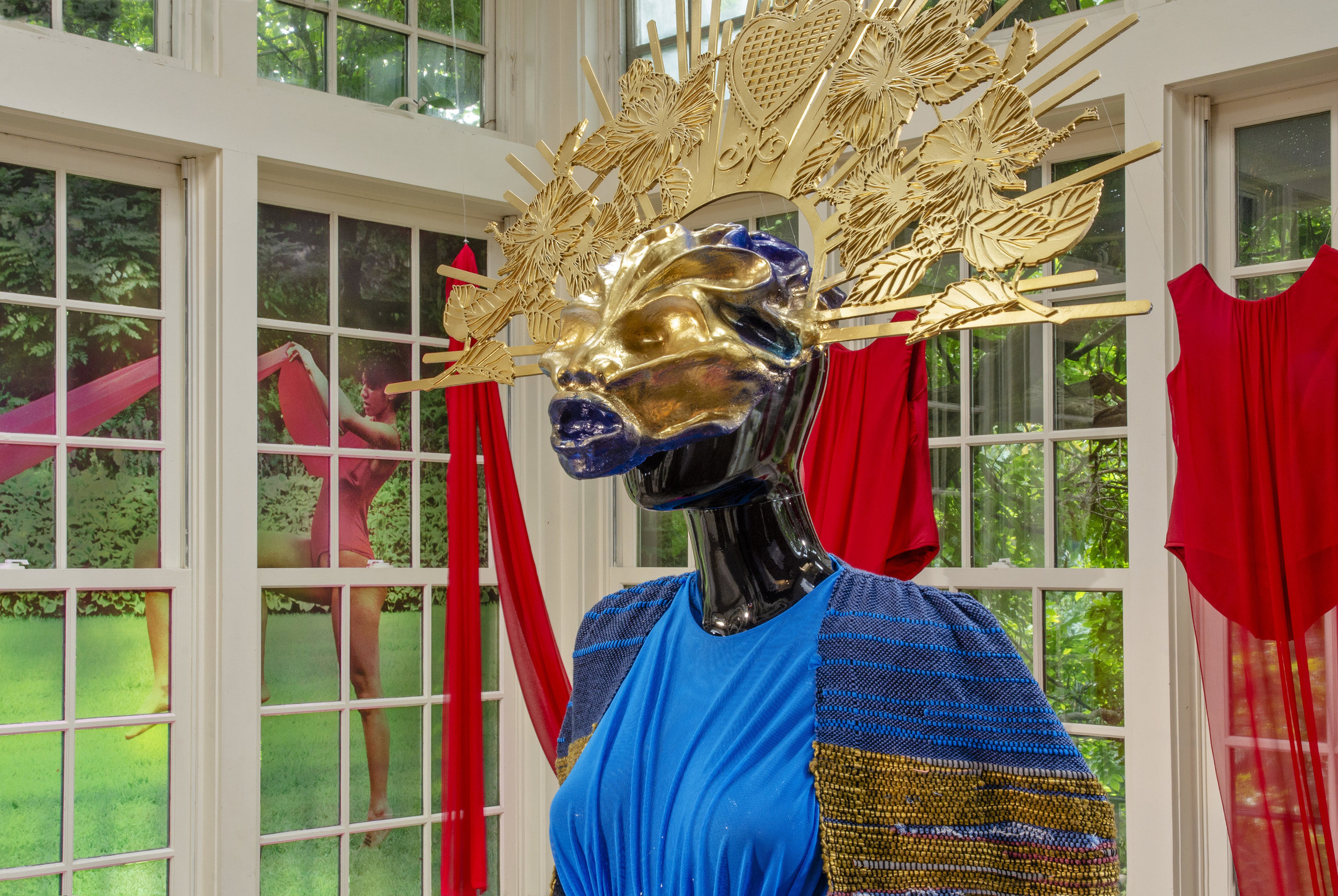Ezili Dantor, Freedom & The African Diaspora
Wave Hill Installation | Ezili Dantor, Freedom & The African Diaspora | 2018
Ezili Dantor, Freedom & The African Diaspora | 2018
Ezili Dantor, Freedom and the African Diaspora: We are here because you were there
Sunroom Project Space | September 8 – October 21, 2018
2018 New York Community Trust Van Lier Fellow Yelaine Rodriguez
Immersive Performance | Ezili Dantor, Freedom & The African Diaspora
AFH | Fabiola Jean-Louis Rewriting History: A Black Ancestral Narrative | 2019
Installation | Afro-Sagrada Familia & Ezili Dantor, Freedom & The African Diaspora
Long Gallery Harlem & Nordstrom | Styling: Black Expression, Rebellion, and Joy Through Fashion | 2020
Ezili Dantor, Freedom & The African Diaspora
New York Community Trust Van Lier Fellow Yelaine Rodriguez creates an installation of wearable art, video, and photography—a project she began developing during Wave Hill’s 2018 Winter Workspace. A Bronx-born, Afro-Dominican-American artist, Rodriguez sources syncretic religious traditions found in African diasporic communities, such as [Vodou] and Santeria, to conceptualize wearable art and costume design. These are activated when worn by people whom she imagines to possess the characteristics of specific deities. Her project features Ezili Dantor, a figure associated with the Black Madonna, the Infant Jesus, and self-liberated African slaves. Rodriguez employs religious symbols to investigate the meaning of freedom, drawing connections between black culture in the Caribbean and the United States.
Rodriguez’s interfaith and intercountry narrative explores representations of identity and race through the lens of being the Other. Her work subverts problematic roles of women in historical references by celebrating shared experiences of women of color. The costume of Ezili Dantor comprises a hand-woven cape—inspired by the colors and textures found at Wave Hill—with a screen print of the 18th-century Abolitionist Medallion. A mask is adorned with symbols of a hibiscus flower ornament, halo rays, and the open-heart veve, an affirmative religious symbol used in [Vodou] throughout the African diaspora. Rodriguez creates a pink dress for the Infant Jesus and red one-piece garments—two are connected by a long cape—worn by dancers portraying African slaves during the Ceremony of Freedom prior to the start of the Haitian Revolution in 1791.
Through research and informed by unearthed stories of her own African ancestry, Rodriguez’s project examines the history of enslaved people who fought to gain their freedom and those who risked their lives trying to obtain it. Rodriguez’s work considers the unifying role of religion, bringing together disparate groups with the practice of masking their [Vodou] deities with Catholic saints. Rodriguez explains: “My motivation is rooted in highlighting awareness of the elegance of people-of-color-enriched culture, often obscured by history. This work is about removing the negative stereotypes associated with Santeria and [Vodou], by using Ezili Dantor and the Haitian Revolution as a source of inspiration for all black culture.”
Rodriguez’s work has been exhibited at The Andrew Freedman Home, American Museum of Natural History, Rush Arts Gallery, The Clemente in New York, and El Centro Cultural de España in the Dominican Republic, among others. She founded La Lucha, an organization that brings Dominican and Haitian artists together. Rodriguez teaches at Parsons/New School of Design, New York. She earned her BFA in Fashion Design from Parsons School of Design. Most recently, she co-curated Resistance, Roots, and Truth at the Caribbean Cultural Center African Diaspora Institute (CCCADI) New York, NY, where she was awarded the 2017 Innovative Cultural Advocacy Fellowship.
Curator + Text by Eileen Jeng Lynch
Wave Hill Installation Photos by Stefan Hagen
Photo Credit Yelaine Rodriguez + Melanie Gonzalez
Nordstrom Installation Photo by Connie Zhou




